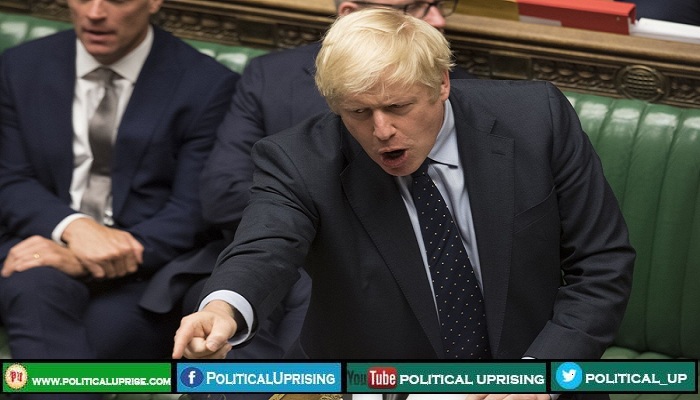UK Parliament will pass landmark legislation enacting the country’s departure from the European Union bloc,MPs finally set to approve Brexit deal.
The United Kingdom moved a step closer to leaving the European Union on Tuesday when Prime Minister Boris Johnson brought his Brexit deal back to Parliament, with MPs finally set to approve it after years of division and delay.
Having scooped a parliamentary majority in the December 12 election, Johnson now faces little threat of defeat, deadlock or delay.
Read More:
- NATO countries to revisit Iraq mission after Iranian commander killing
- US military base attacked by Al-Shabaab
- Germany urges talks with Iran to end tensions
- Bolivia to choose new president on May 3
- Soleimani killing escalated tension between US and Iran
- Defence standing committee approves army chief unanimously
- German airports can expect decline in flights and passenger in 2020
- British commuters face fare rise in rail
- Tunisian designated Prime minister announces cabinet formation
Opening the debate, Brexit Secretary Steve Barclay said the Withdrawal Agreement Bill “delivers on the overwhelming mandate given to us by the British people to get Brexit done by the end of January”.
Members of Parliament have three days to debate the legislation to enshrine Johnson’s divorce deal, which will steer the country’s most significant constitutional change for a generation.
Attention is turning to the next phase of Brexit, in which London will seek to agree upon a new economic partnership with the EU, its largest trading partner.
The two sides have agreed on an 11-month transition phase in which to do this, lasting until December 31, with their ties remaining the same in practice during that time.
Many in the EU believe this timeframe is too tight, but London has insisted it will not seek an extension.
British officials said Johnson will emphasise this point in his first meeting with Ursula von der Leyen, the new president of the European Commission, in London on Wednesday.
The EU does not yet have a formal mandate to begin trade talks, as the UK has not left the bloc, but both sides are eager to begin preparations for the negotiations.
Failure to reach a trade deal before the end of the transition period could result in significant disruption and economic damage on both sides of the Channel.
Commission spokesman Eric Mamer said von der Leyen would discuss with Johnson how “we can come out with a positive agreement at the end of the year”.
Johnson is so determined that there should be no extension to the transition phase that he has enshrined the December 31, 2020, date in the Brexit bill.
British opposition MPs condemned the move, and Green MP Caroline Lucas warned Tuesday that it would “tie the hands of the government in such an unnecessary way”.
But addressing a nearly empty Commons chamber, Barclay insisted, “With absolute clarity on the timetable, we are working to, the UK and the EU will be able to get on with it.”
Johnson, a former London mayor who led the Brexit campaign in the referendum, is eager to move on from EU matters and his government has implemented an unofficial ban on the word “Brexit” starting next month.
His finance minister, Sajid Javid, also announced on Tuesday he would hold a new post-Brexit budget vote on March 11, to “seize the opportunities that come from getting Brexit done”.
The Brexit deal covers the UK’s financial liabilities, protections for around 3.5 million EU citizens living in the UK after Brexit, the transition period and new trade arrangements for Northern Ireland.
The main opposition Labour party tabled numerous amendments to the bill, but has conceded it does not have the numbers to get them through.
UK Brexit deal is back before MPs, but with strong Conservative majority, this time it’s set to pass. The move clears the way for the UK to formally leave the EU by the end of this month.



